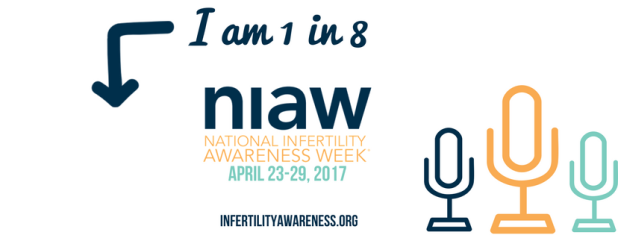PGS (pre-implantation genetic screening) is a complicated topic. While I knew we would opt to use PGS during our upcoming stim cycle prior to a transfer very early on, I didn’t know much about it. I’d watched an animated video on the website of the laboratory that my clinic uses for PGS, and it felt a bit Schoolhouse Rock-esque, without the clever puns and music. This video could have used those. I felt like I knew the basics of what happens to the embryo/blastocyst during the PGS testing, the lab counts chromosomes, … blah, blah blah… and then following testing my husband and I would see a report on our embyros each characterized into two neat little columns — normal or abnormal.
At least some of that was correct.
I’ll say before I move on that I am not usually one of those infertiles that spends hours in the middle of the night on message boards comparing IVF stories with other women. I’m not passing judgement on the women that do that, mind you. For me, and my mental health, I have to sometimes turn down the fire hose of infertility information. I very much pick and choose when I consult Dr. Google or the message boards because when I know too much, my anxiety hits dangerous (read: 1947-era padded room, straight jacket) levels. Too much research can cripple me. I try to be well-informed about my treatment options and protocols, and I think I am, but I know my limits. I’m good without knowing that Jane Doe in Oregon also had a Lupron-down protocol resulting in 20 eggs at her retrieval and then experienced this freak thing… yeah. I, personally, don’t need to know. I advocate for myself but I also trust my doctor and the greatest nurse on the planet.
So while I knew I’d move forward with PGS almost regardless of my research, I still wanted to learn more about it. If anything, I wanted to confirm that I was making the right call about doing it, and gain confidence that we’d have some clear answers after the tests were complete.
Where did I land? Well, I will say that PGS is (still) the absolute right step for us at this point (more on that in a bit). But, dayum, I got schooled.
First, all hail FertilityIQ. Their online course on PGS is the absolute best, most comprehensive resource on the subject I’ve found. If you’re considering this as part of your treatment plan, take 30 minutes to watch their helpful videos and read through their detailed written material. Deborah and Jake, the founders of the site, host the videos and I’d like to be friends with them. They’re clearly knowledgeable (fertility clinic vets so they totally get it), but they also include interviews with doctors on both sides of the aisle in this PGS debate. The course has easy to understand patient examples, visuals and just a ton of great information. Honestly, it’s not only worth your time, but in my opinion you owe it to yourself to understand the intricacies of such a complex fertility topic.
This post isn’t sponsored by the site, nor do I have any relationship to it, I am just a big fan. Also, I probably don’t need to mention this but I am NOT. A. DOCTOR. I am a fellow infertile sharing her experience.
Remember when I said that I thought after PGS all of our created embryos (and Kristoff) would be put into two nice little black and white buckets? Nooope. Because mosaic embryos are a thing. As a woman lumped into the unexplained infertility category I’ll say they are a potentially confusing, frustrating thing. I don’t need more unexplained science, world! I need answers. The FertilityIQ videos and text were extremely helpful in explaining not only what mosaicism is, but that there are questions I need to ask my clinic about their policies on identifying these gray area embryos. (Aside: And because I now knew to ask this question I got an answer about my clinic’s policy! #winning)

What this all comes down to is that I’m glad I did the research on PGS. While the idea of mosaic embryos does kinda make me want to cry in the corner, simply because it’s just more uncertainty when I’ve had my fill of that, I’m glad I’m armed with this information to better advocate for myself and my future blastocysts. I can ask the questions of my clinic, talk to a genetic counselor if I’m in a position where we only have mosaic embryos available, and then decide what’s right for us. If any of that happens.
Here’s why PGS is right for us at this moment in time: I’m 36. I’ve had two miscarriages, a chemical pregnancy and three failed embryo transfers (with a total of five embryos). Other than chronic endometritis, three years of infertility treatments and countless tests have not brought us any closer to a baby. This road is ending for us soon, with or without a biological child. I’m tired. We’ve reached our debt ceiling. PGS will allow us the best possible opportunity to have that baby. We will carry more debt with us because of it, but we’re going for broke this time (perhaps literally as well as figuratively). This is it.
If there’s one thing I feel really positive about heading into this last stim cycle, it’s the decision to have our embryos tested. And honestly, I really need that sliver of hope.




